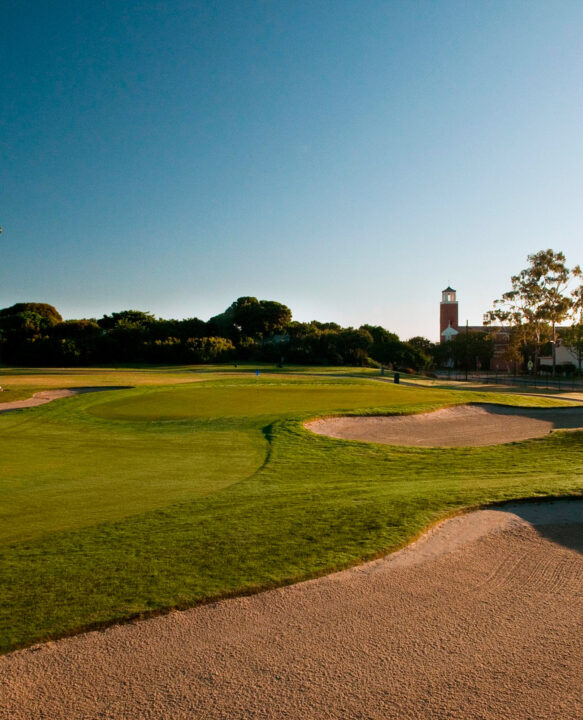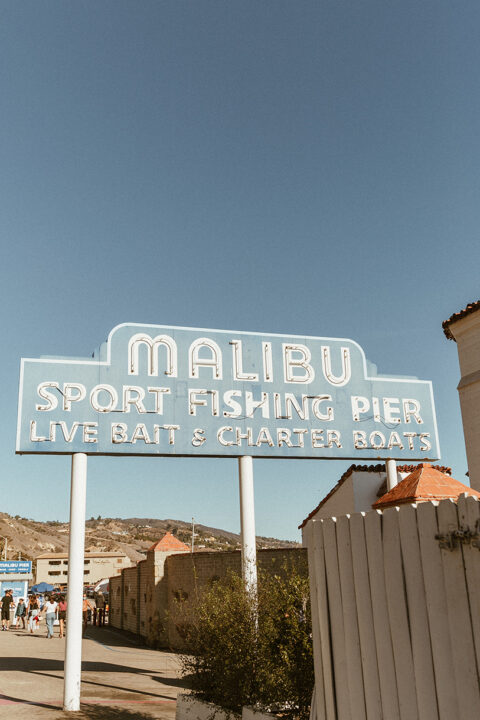
The Beaches
1. El Matador Beach: Drama Meets Instagram Gold
This isn’t your typical sprawling beach. Giant rock formations create hidden coves that feel almost secret. One recent visitor captured it perfectly: “It’s not just a place to dip your toes—it’s a sanctuary.”
The local move: Pack a picnic and arrive before 10am. The small parking lot ($8 fee) fills fast, but early birds get the whole beach to themselves. Pro tip: wear shoes you don’t mind getting wet for the tide pools between the rocks.
2. Dume Cove: Where Locals Go
While everyone fights for parking at Zuma, locals slip down to this hidden gem below Point Dume. The steep trail keeps crowds away, leaving calm waters perfect for swimming and tide pools full of sea life.
Getting there: Park near Westward Beach, walk toward the rocky point, and look for the narrow trail heading down. Trust us—it’s worth the climb.
3. Surfrider Beach: Legendary Waves
This is where California surf culture was born. Even if you’ve never touched a surfboard, watching the lineup here is like witnessing poetry in motion. The consistent breaks make it perfect for surf lessons too.
Local knowledge: The best people-watching happens from the Malibu Pier. Grab coffee and watch surfers, celebrities, and families all sharing the same perfect waves.

Cultural Treasures
4. Getty Villa: Ancient Art Meets Pacific Views
Free admission, world-class art, and Roman gardens overlooking the ocean. The Getty Villa houses an extensive collection of ancient Greek, Roman, and Etruscan art in a recreation of a Roman country house.
Insider tip: Book the outdoor theater performances for an unforgettable experience of ancient stories under the stars. You need timed-entry tickets, so plan ahead. Parking is $25 per car ($15 after 3pm, $10 after 6pm).
5. Adamson House: Malibu’s Golden Age
This 1930s mansion showcases the Malibu tile work that put the area on the map. Built by the Rindge family who once owned most of Malibu.
The adjacent museum tells the complete story, from the indigenous Chumash people to the transformation into celebrity central. It’s Malibu’s story in tile and timber.

Wine Country Meets Ocean Breezes
6. Malibu Wine Hikes: Adventure Through the Vines
Experience Malibu wine country on foot with guided hikes through the scenic 1,100-acre Saddlerock Ranch. These 2.5-mile loop hikes take you through vineyards, past ancient Chumash Native American cave paintings, and offer encounters with friendly ranch animals like llamas, alpacas, horses, and goats.
What makes it special: The tour includes hiking through grapevines, photo opportunities at “The Frame,” viewing historic cave paintings, mid-hike wine tastings, and ends with a wine-filled send-off. Tours are led by enthusiastic guides who share the property’s history and local flora and fauna.
Book this: The combination of exercise, education, and wine tasting makes this perfect for active wine lovers. Tours run Wednesday through Sunday and last about 2 hours. Reserve your hiking adventure.
7. Cielo Farms: Hidden Gem with Pizza, Wine & Views
Tucked away in the Santa Monica Mountains, this Tuscan-inspired estate spans 35 acres with some of the most spectacular views in Malibu. The Barn tasting room offers over 20 wines from their estate vineyards, plus artisanal pizza and an atmosphere that feels worlds away from the coast.
What makes it special: The combination of award-winning wines, wood-fired pizza, and panoramic mountain views. It’s appointment-only, which keeps it intimate and exclusive.
Local tip: Book ahead through their website or Tock. This place fills up fast, especially for sunset tastings when the golden light hits the rolling hills. Note: Parking fees apply on weekends and holidays ($19).

Adventures
8. Malibu Creek State Park: Where Hollywood History Lives
This 8,000-acre park doubled as the Korean countryside in MAS*H. Today, it offers excellent hiking, rock climbing, and swimming holes.
The payoff: Rock Pool, a natural swimming hole that feels like your own private oasis after the moderate hike. Bring water and a camera for the valley views.
9. Point Dume Nature Preserve: Free Whale Watching
December through April, gray whales migrate past these bluffs. No boat required. On clear days, you can see from Palos Verdes to Ventura County.
10. Solstice Canyon: Easy History Hike
Perfect for families or anyone wanting adventure with a story. The trail leads to ruins of a 1950s stone house, and the year-round creek creates a green oasis.

Local Eats
11. Malibu Farmers Market: Sunday Community Vibes
Every Sunday, the Civic Center becomes the heart of Malibu’s community. Local farms bring organic avocados to artisanal honey. It’s where neighbors catch up and visitors taste real Malibu life.
Don’t miss: The seasonal fruit and fresh-baked goods from local bakeries.
13. Local Wine & Snack Spots for Your Malibu Adventures
Whether you’re planning a beach picnic, mountain hike, or cozy evening at your accommodation, Malibu has excellent local spots to stock up on quality provisions:
Vintage Grocers at the Lumber Yard shopping center offers a curated selection of wines, artisanal cheeses, and gourmet snacks. It’s locals’ favorite for quality picks without the tourist markup.
Malibu Liquor & Wine provides an extensive wine selection and specialty spirits, perfect for sunset drinks wherever your Malibu adventure takes you.
Whole Foods Malibu features organic options, local wines, and a great cheese counter with knowledgeable staff who can recommend perfect pairings for any occasion.
Local tip: The Malibu Country Mart and nearby Malibu Village have multiple dining spots if you want to grab prepared foods for an impromptu picnic or casual meal.
12. Neptune’s Net: Legendary Seafood Shack
Serving fresh catches since 1958. This dive maintains its authentic atmosphere while delivering excellent seafood. Bikers, surfers, and celebrities all come for the same great fish and chips.
The outdoor seating provides ocean views and the best people-watching in Malibu.

Hidden Gems
14. Malibu Bluffs Park: Best Views, No Crowds
Spectacular coastline views without the crowds. The trails connect multiple viewpoints, and the picnic areas are perfect for sunset dinners.
15. Leo Carrillo State Park: Tide Pools and Sea Caves
At Malibu’s northern edge, this park offers the region’s best tide pooling. During low tide, discover anemones, sea stars, and hermit crabs. The sea caves add adventure.
16. Historic Hotel June: Where Music History Happened
Speaking of hidden gems, here’s one with serious rock credentials. In the 1970s, Bob Dylan stayed in room 13 of what was then the Malibu Riviera Motel while writing songs for “Blood on the Tracks,” an album many consider his masterpiece. As Gary Wilcox, son of the original motel owners, recently shared: “What I have known my whole life as the Malibu Riviera Motel, which is where I was born, is now back, and better than ever as Hotel June.”
The MICHELIN Guide puts it perfectly: “there’s finally a boutique hotel in town with personality and good taste to spare.” Current Asset Manager Sam Shendow told Architectural Digest: “It’s important to us that people understand how much history the property has and how much love and thoughtful attention has gone into preserving not only the original building the Wilcoxes created, but also the dream their family had.”
The 13 renovated bungalows still display Wayne Wilcox’s original photography throughout, capturing a special moment in Malibu history.
The Dylan connection: As owner Shaun Gilbert told Rolling Stone: “Room 13, you can’t really describe it, but it feels different. Everyone who’s stayed there tells us it’s their favorite room, regardless of people knowing the history or not.”
Planning Your Perfect Malibu Day
The secret to experiencing Malibu like a local? Don’t rush. Start with sunrise at El Matador Beach, spend midday hiking in Malibu Creek State Park, and end with wine tasting at sunset.
Transportation tip: PCH can get busy, so start early. Many spots have limited parking, particularly popular beaches and the Getty Villa (which requires advance reservations).
What Makes Malibu Special
As one recent Hotel June guest put it: “It’s not just a stay. It’s a feeling. And feelings are what great hotels should be made of.” That captures Malibu perfectly. The magic comes from slowing down enough to truly experience each moment.
The natural beauty remains as stunning as ever, and the community spirit makes Malibu truly special. Local businesses operate with a deep appreciation for preserving the area’s character, creating opportunities for meaningful connections.
Whether you’re planning a day trip or a longer Malibu retreat, the key is embracing that Saturday afternoon feeling, even on a Tuesday. In Malibu, any day can feel like the weekend when you let it.
Frequently Asked Questions
What’s the best time to visit Malibu? Late spring through early fall offers the most consistent weather, but Malibu’s mild climate makes it year-round friendly. Winter brings the best whale watching opportunities.
How many days do you need in Malibu? A long weekend lets you hit the highlights without rushing. Many visitors find that Malibu’s relaxed pace encourages longer stays.
Is Malibu family-friendly? Absolutely. Beaches like Westward offer gentle waves for kids, while attractions like the Getty Villa provide educational experiences. The farmers market and various parks cater specifically to families.
Can you visit Malibu without a car? Challenging but possible. Metro buses serve some areas, and ride-sharing operates throughout Malibu. However, a car provides much more flexibility for beach hopping and trail access.
What makes Malibu different from other beach towns? The combination of dramatic landscape, cultural attractions, and authentic community spirit. Plus, where else can you go wine tasting and still make it to world-class beaches by afternoon?
How has Malibu changed recently? The community has strengthened its commitment to preserving the area’s character while welcoming visitors. Many attractions have improved facilities while maintaining their natural beauty.
Any seasonal considerations? Summer brings crowds but perfect beach weather. Fall offers fewer visitors and excellent hiking conditions. Winter provides the best whale watching, while spring features mountain wildflower blooms.
Note: Prices, hours, and availability are subject to change. Please check directly with venues before visiting to confirm current information.











